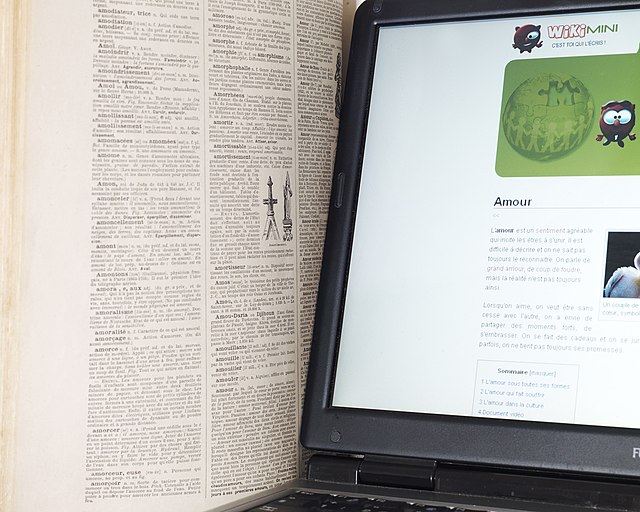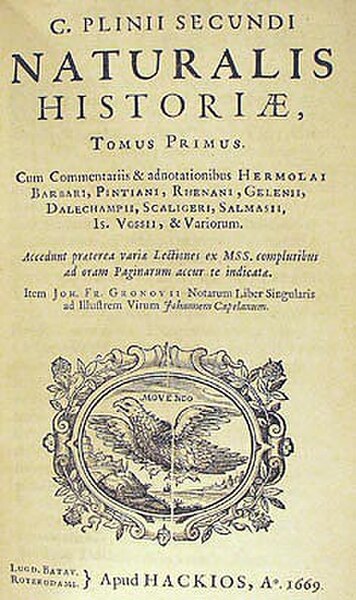The medieval genre of speculum literature, popular from the twelfth through the sixteenth centuries, was inspired by the urge to encompass encyclopedic knowledge within a single work. However, some of these works have a restricted scope and function as instructional manuals. In this sense, the encyclopedia and the speculum are similar but they are not the same genre.
This author portrait of Vincent of Beauvais in a manuscript of his Speculum Historiale, contains an actual convex mirror as a visual pun. French translation by Jean de Vignay, Bruges, c. 1478–1480, for Edward IV; British Library
An encyclopedia or encyclopaedia is a reference work or compendium providing summaries of knowledge, either general or special, in a particular field or discipline. Encyclopedias are divided into articles or entries that are arranged alphabetically by article name or by thematic categories, or else are hyperlinked and searchable. Encyclopedia entries are longer and more detailed than those in most dictionaries. Generally speaking, encyclopedia articles focus on factual information concerning the subject named in the article's title; this is unlike dictionary entries, which focus on linguistic information about words, such as their etymology, meaning, pronunciation, use, and grammatical forms.
Entry for the French word "Amour" (Love) in a paper encyclopedia (Larousse Universel) and in an online encyclopedia (Wikimini.org).
Title page of Lucubrationes, 1541 edition, one of the first books to use a variant of the word encyclopedia in the title
Naturalis Historiæ, 1669 edition, title page
Isidore of Seville author of Etymologiae (10th. century Ottonian manuscript)





